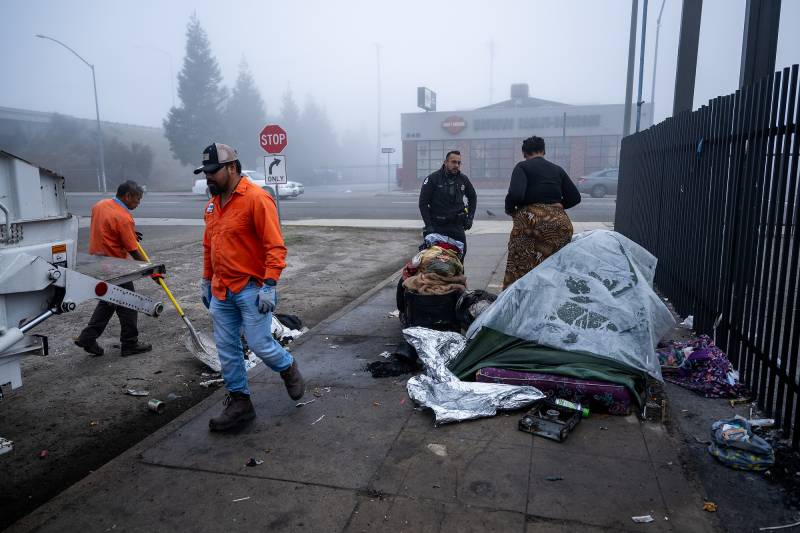Here are the morning’s top stories on Friday, June 27, 2025…
- This weekend marks the one year anniversary of the Grants Pass Supreme Court ruling. It gave cities in California and across the country more power to crack down on homeless encampments. Our California newsroom partner, CalMatters, has been tracking the aftermath of Grants Pass over the past year.
- A federal judge is siding with California in the latest legal maneuvering over President Donald Trump‘s decision to send armed troops to Los Angeles.
Homeless-Related Arrests, Citations Soared In These California Cities After Supreme Court Case
Homeless residents of some of California’s biggest cities increasingly are facing criminal penalties for the actions they take to survive on the street, according to a first-of-its-kind CalMatters analysis of data throughout the state.
Saturday marks the one-year anniversary of the U.S. Supreme Court’s decision in Grants Pass v. Johnson, which upended California’s homelessness strategy by allowing cities to enforce blanket bans on camping — even if no shelter beds are available. Immediately after the decision, unhoused Californians and the people who help them reported seeing an increase in enforcement. But CalMatters’ reporting, gleaned from more than 100 public records requests, appears to be the first statewide effort to quantify that increase.
CalMatters analyzed data on arrests and citations for camping and other homelessness-related offenses for 2024, comparing the six months before the June 28 Supreme Court decision to the six months after. They found increases in cities throughout the state, even in those where local leaders said they didn’t change their policy as a result of Grants Pass. Here are some of the places with the most significant increases, according to police data:
- In San Francisco, then-mayor London Breed promised to be “very aggressive” in moving encampments following the Grants Pass decision. She delivered: Arrests and citations for illegal lodging increased from 71 in the six months before the ruling to 427 in the six months after — a 500% increase.
- Even though Los Angeles Mayor Karen Bass spoke out against the Grants Pass decision, calling it “disappointing” and vowing to lead with housing instead of enforcement, homelessness-related arrests increased 68% after the ruling.
- Citations and arrests doubled in San Diego, which also doubled the size of its police teams that respond to homelessness.
- In Sacramento, the number of citations and arrests nearly tripled – from 96 in the six months before Grants Pass, to 283 in the six months after. From January through May 2025, Sacramento police had already issued 844 citations and arrests, suggesting enforcement continues to trend upward.
- Stockton issued just 14 homelessness-related citations in the six months before the Grants Pass decision. In the six months after the ruling came out, that number jumped to 213.
- It wasn’t just big cities that saw more enforcement: Citations and arrests increased by more than two-thirds in Ukiah, on the North Coast, and more than doubled in Merced, in the San Joaquin Valley.
Federal Judge Orders Trump Officials To Be Deposed After National Troop Deployment
The state of California will be allowed to depose key Trump administration officials and seek more details about how thousands of armed troops have been used since their deployment earlier this month to Los Angeles amidst immigration raids and resulting protests.

